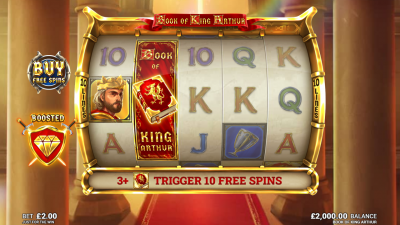The world of online casino games has always been laden with questions about transparency and fairness. From blackjack to poker, players, for years, disputed unfavorable outcomes and doubted if the virtual dealer may be stacking the deck.
In an industry that thrives on trust, it is shocking how nebulous the notion can be in the online gaming space. Enter the concept of “provably fair” – a phrase poised to be a paradigm shifter in the digital shuffle of cards. In this article, you'll learn what makes online poker provably fair and why it is important in today's online gaming scene.
Brief History of Poker
Poker is said to have ancient origins that span multiple countries and cultures, dating back over 1,000 years. Some historians believe poker originated from a domino-card game played by a tenth-century Chinese emperor. Others believe it is a descendent of the Persian card game “As Nas,” which goes back to the sixteenth century.
However, most poker advancements as we know it today occurred in the 1970s when American casinos introduced the World Series of Poker. Champions like Johnny Moss, Bobby Baldwin, and Amarillo Slim created several poker strategies and published books.
In the 1980s, poker turned out to be a trendy culture. It was featured in Star Trek episodes that further boosted its popularity. In particular, Texas hold' em poker and seven-card studs became the most played variation.
During the 1990s, poker achieved widespread recognition in the United States, particularly in Atlantic City and New Jersey. But its popularity soared dramatically in the early 21st century. This was propelled by the emergence of online poker games.
The next huge step in the development of online poker was the integration of Cryptocurrencies into the Gameplay. Unfortunately, despite the use of crypto, players couldn't trust online poker rooms 100%. All they had to depend on were the reviews from other players, assurances of the software developers, and their own instincts.
Let's face it; these sources are not the most dependable. Fortunately, there are poker rooms where you don't need to depend on external assurances. Everything within these platforms is transparent. This level of transparency is made possible by the Provably Fair algorithm.
What is Provably Fair and Why is it Important in Poker?
Simply put, provably fair means that both the player and the casino can verify the outcome of each poker round through cryptographic methods. In contrast to traditional online casinos, where trust is placed in the internal systems, provably fair platforms allow you to independently confirm the fairness of every poker game.
In essence, every transaction, turn, and draw is branded with a virtual “fair play” certification. This isn't just a thin veneer of trust: it's statistically proven trust meant to lift the veil of skepticism that frequently envelops online card games. The significance of this technology goes well beyond just assuring players that they are not being scammed. It represents a dramatic change in online gaming toward total openness and fairness.
The relevance of provability in poker is enormous. As you might be aware, card games involve strategic decision-making; however, what good will come out of strategy if you cannot trust the system or a platform? Provability brings back the element of skill, ensuring that every card dealt and every poker game played is 100% random and fair.
How Does Provability Work in Poker?
Cryptographic technology is the foundation of provably fair gambling, particularly in poker. It ensures that neither the online casino nor the player can meddle with or foresee the outcome. Before a hand begins, the online casino generates a random client seed and a random server seed. These are combined to determine card draw, shuffle order, or poker game outcomes.
The server seed is hashed (altered to a cryptographic code) and delivered to the player. The actual server seeds remain concealed. That means even though the player knows the hash, they cannot influence or determine the outcome. The player makes the decisions they believe will help them win, and the game continues as usual. At the end of every round, the actual server seed is unveiled to the player. Using the server seed and its hash, players can use in-built casino features or 3rd-party tools to verify that the outcome was random and fair.
If the newly generated hash, derived from the revealed server seed, matches the initially sent hash, it indicates that the game was conducted fairly. The beauty of this process lies in the fact that without access to both seeds, neither party can determine or manipulate the outcome.
What are the Benefits of Playing Provably Fair Poker?
You can independently check the outcome of each poker game, getting rid of the mistrust that is sometimes connected with online gambling. Every game aspect is displayed for everyone to see. Nothing is left to chance, from how the deck is shuffled to how the poker cards are dealt.
You don't have to depend on audit reports or external regulators. You can verify the fairness yourself and in real-time. The fact that you know you are playing a provably fair game allows for a more enjoyable and engaging experience.
With cryptographic proofs, the probability of a rigged poker game is nil, reducing occasions where you might feel duped.
Furthermore, provably fair poker casino sites are built on blockchain technology, which inherently provides more powerful privacy safeguards.
How to Get Started With Provably Fair Poker?
All you need to get started with provably fair poker is a good device (PC or Smartphone) and a basic awareness of how to check the provability features. Many poker sites also include tutorials to help beginners navigate the verification procedure.
Provability is changing the way people think about trust and fairness in the online gambling sector. And as we go toward a more transparent digital era, it is no longer enough just to play poker; it is about playing it right. The days of questioning the dealer, the shuffle, and the cards are over. You are not just a player while playing provably fair poker; you are a verifier, a strategist, and, most of all, a winner.


